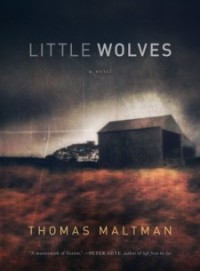Snowblind by Christopher Golden
 Monday, January 20, 2014 at 9:09AM
Monday, January 20, 2014 at 9:09AM 
Published by St. Martin's Press on January 21, 2014
People die in blizzards, usually by crashing their cars, freezing to death, or having heart attacks while shoveling heavy snow. But during the worst blizzard that Coventry, Massachusetts has seen in many years, people die for mysterious reasons, after hearing whispers in the wind and feeling the chill of icy fingers. Twelve years later, people in Coventry still get nervous when it snows, remembering the eighteen deaths. The dead have an impact on the characters who make up the ensemble cast of Snowblind, an imaginative and (pardon the expression) moderately chilling horror novel that makes me glad I no longer live in blizzard country.
Having lost his job and then his wife during the blizzard, Doug Manning has focused his disintegrating life on a series of small-time burglaries. He attracts the suspicion of Joe Keenan, a police detective who is haunted by memories of the child who died in his arms when he was a uniformed cop on patrol during the blizzard. Jake Schapiro, whose little brother died in the blizzard, is now a part-time police photographer. TJ Farrelly, a musician/electrician, was thrown into the arms of the woman who is now his wife during the storm, but that relationship is fraying and their daughter ... well, when another storm comes, their daughter's behavior is unsettling -- as is true of many of the people who interact with the main characters.
I don't go out of my way to read horror fiction but there are good stories to be told in every genre. Snowblind tells a good story. It does so by putting characters first, by creating people who seem real, who are easy to care about, and by letting the reader experience vicarious fear when those characters are endangered or encounter the unknown. Christopher Golden relies on psychological horror rather than blood and gore which, for me, is a more effective means of triggering emotions.
Much of the novel revolves around the low-key domestic dramas in which the central characters are involved. Tension builds slowly as the characters confront the dangers that lurk in the new storm, but it never climaxes in a truly frightening moment as does the best horror fiction. It does, however, reveal the turmoil of the characters as they wrestle with their inner demons, and those provide better drama than the creatures that inhabit the wind and snow.
Sometimes the story is a little obvious -- it is fairly easy to figure out why people are behaving strangely -- and I'm not sure whether Golden meant for the secret to be so easily guessed. I found it difficult to buy into the phenomenon that drives the story, in part because it isn't convincingly described and in part because it is too easily battled in the end, but I liked the characters so much that my reservations about the plot were not a serious obstacle to my enjoyment of the novel.
RECOMMENDED



